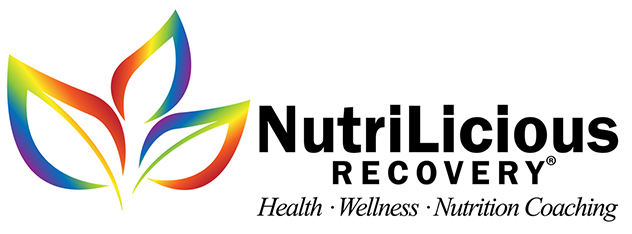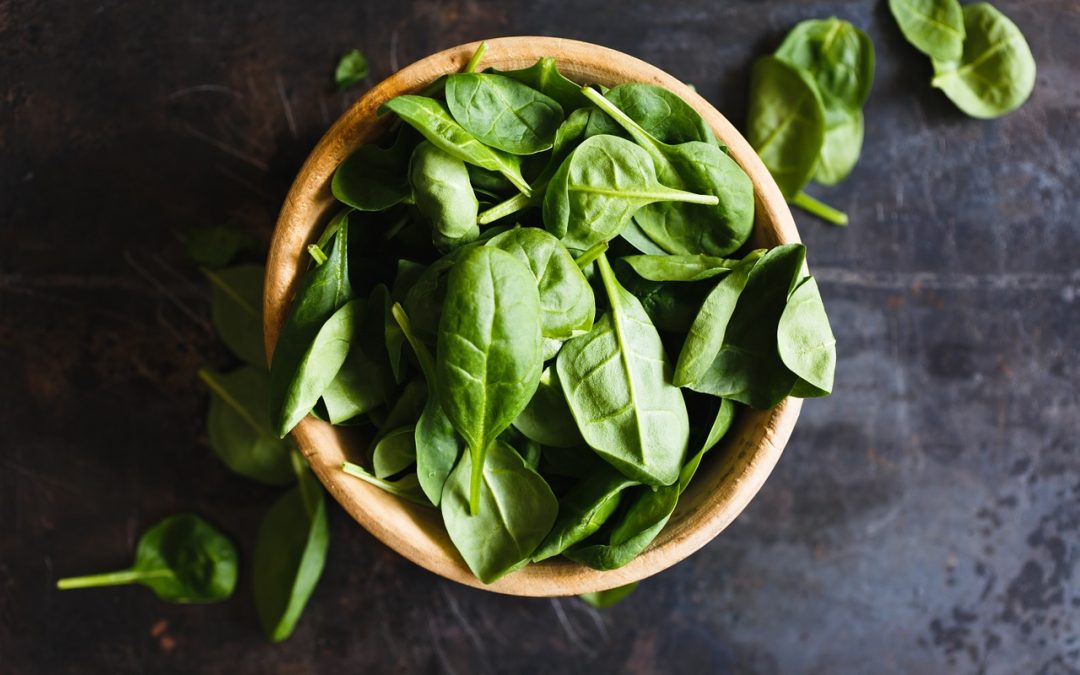
by dnshah | Apr 28, 2019 | Age Defying, Diet and Weight Loss, Health and Wellness Tips, Stress Management
The latest research has found that just one serving of leafy greens a day can take more than a decade (11 years) off an aging brain, in terms of decreased brain power; and two servings a day can have even greater results. What does this mean exactly? Our memory and brain function typically decline as we age; but we can take actions that allow us to not only stop memory loss, but also reverse it. One such action is eating our daily serving of greens.
In the past I’ve talked about the importance of G-B-O-M-B-S, the acronym used to discuss the daily foods one should eat to be healthy. It stands for Greens, Beans, Onions, Mushrooms, Berries, and Seeds/Nuts. That “G” just got upgraded to first class. Realistically the brain is one of our most prized organs, and if there is any nutrition out there that can minimize damage and promote improvement, it has to be talked about.
The strongest association with slowing down our aging decline in the brain is consumption of spinach, kale, collard greens, and lettuce varieties. Does it really matter if it is the vitamin K1, betacarotene, phylloquinone, lutein, nitrate, folate, kaempferol or alpha tocopherol? Most people don’t care as long as we are getting the benefits of consuming the greens in our meals or our smoothies (or both)! Remember that the Environmental Working Group states that spinach, kale, and celery made the dirty dozen list in 2019 and should be purchased organic.
For those actively trying to improve brain function, nutritional supplements can have a big impact, especially in terms of curcumin, a quality omega 3 (fish oil, flax meal), B vitamin supplements, and co-enzyme Q10. For more information, seek out a health professional to help you work your best strategy to improve you. Yes, you can!
Resources
2018, January 16; Barnes, LL; Bennett, DA; Booth, SL; Dawson-Hughes, B; Morris, MC; Wang, Y.; Neurology 90(3); Nutrients and Bioactives in Green Leafy Vegetables and Cognitive Decline.
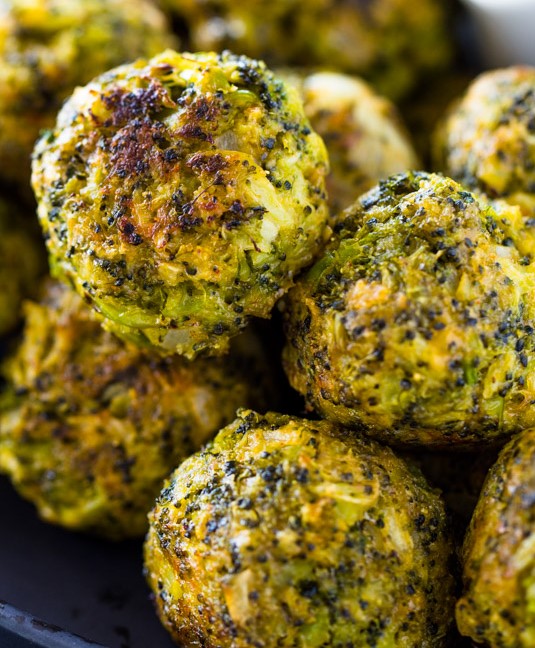
by dnshah | Mar 29, 2019 | Diet and Weight Loss, Main Dishes, Recipes, Side Dish
An amazing substitute for meatballs in pasta or a great appetizer. Makes 10-12 vegan balls.
INGREDIENTS
1 large head of broccoli, florets and tender stem, minced
¼ cup finely chopped onion
¼ cup finely chopped celery
1 teaspoon dried basil
1 Tablespoon nutritional yeast
1 teaspoon EVOO
½ teaspoon dried oregano
½ teaspoon garlic powder
½ chipotle pepper
⅓ teaspoon salt
¼ teaspoon ground black pepper
¼ cup almond meal
¼ cup bread crumbs, gluten-free if desired
1 chia seed egg: 1 Tablespoon chia seeds + 3 Tablespoons warm water, allow 2 minutes to gel
OPTIONAL: ¼ cup vegan cheese shreds
METHOD
- Heat oil over medium heat.
- Add onions & celery and cook for 3-4 minutes.
- Pulse the broccoli and basil in a food processor until minced. Add to the pan.
- Mix in salt and cook for 3-4 minutes to draw out excess moisture. Take off heat.
- Mix in the spices, almond meal, and breadcrumbs. Make the chia seed egg.
- Mix in the vegan cheese shreds if using. Add more breadcrumbs if needed.
- Preheat the oven to 400 degrees F / 200ºc.
- Prepare a parchment lined baking sheet.
- Shape the mixture into balls. If the balls are too crumbly, sprinkle some non-dairy milk and mix well.
- Place on prepared baking sheet.
- Bake for a total of 20 to 25 minutes or until crisp and golden on the outside. Serve warm with marinara or over spaghetti or as veggie balls in a sub sandwich.
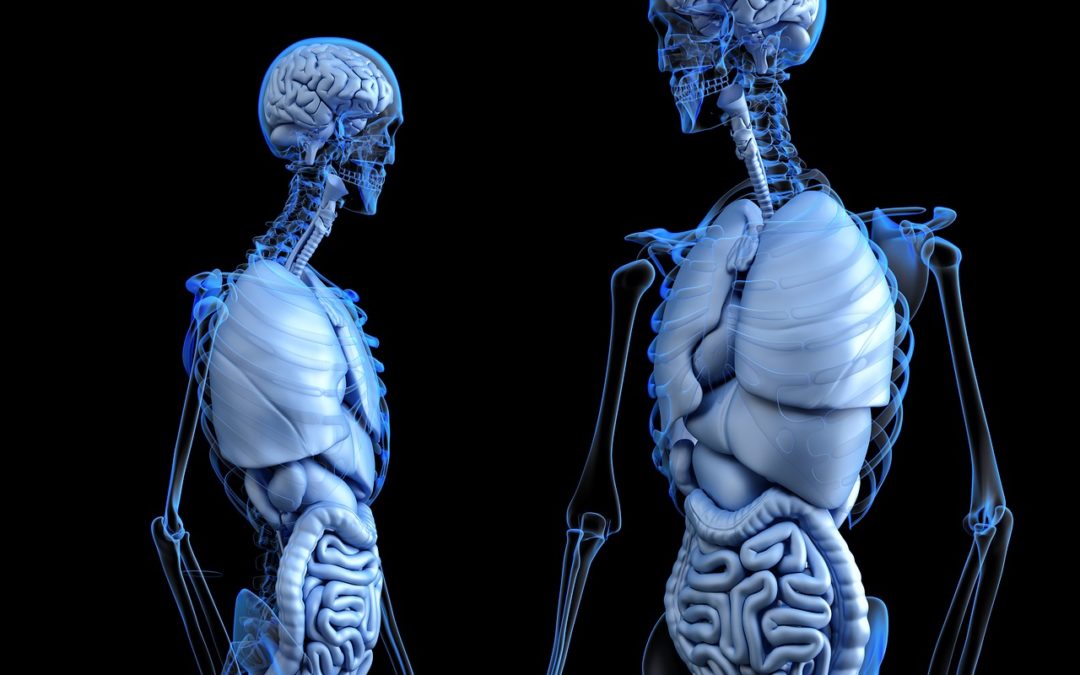
by dnshah | Mar 29, 2019 | Age Defying, Health and Wellness Tips
I am often asked how much nutrition can really impact someone with a chronic illness. The right nutrition can fuel our cells better, which means healthier tissue, which turns into healthier organs. In fact the body, given adequate nutrition daily, can create improved organs over time. It takes 3 days for our intestinal epithelium to regenerate, 6-9 days to regenerate our stomachs, 20-30 days for our skin to regenerate, and 10 years for our skeletons to completely regenerate. Our bodies are in a constant state of creation, so I always have hope that better nutrition can improve our state of health.
When nutrition is lacking over time, we increase our risks of illness (our pre-programmed weaknesses are typically our genetic + environmental vulnerabilities). In our first signs of illness, we hope that nutrition (or medicinal foods) can get our bodies back into balance; unfortunately I see many of today’s pharmaceutical medications simply suppressing the early signs or symptoms of illness. Unfortunately many medical practitioners are becoming experts at disease management, instead of disease healing, aka wellness management… and there is big money (billions) to be made in disease management, especially since our popular health insurances are more inclined on subsidizing expenses for illnesses rather than prevention.
I believe that investing in your health to prevent or delay onset of illness will be a better payoff in terms of total dollars spent AND in quality of life. For those willing to tweak their diets for better regeneration, be empowered.
Here are some nutritional foods that can support our organs. Remember to check with your doctor when adding new herbs, and medicinal foods to your diet. These components can have side effects or interactions with medications, that your doctor can make your more aware of.
Hormone regeneration can involve increasing the endocrine’s ability to secrete more hormones, and transforming degraded hormones into “transient” hormone metabolites.
This includes:
- Vitamin C, which can contribute electrons to transform estradiol (estrogen), progesterone, testosterone. (Think citrus fruits, melons, kiwi, mango, pineapple, etc).
Liver regenerative substances include:
- Glycyrrhizin (think licorice)
- Carvacrol (think oregano)
- Curcumin (think Golden Milk)
- Rooibos (think Rooibos tea)
- Vitamin E (think fatty acids and seeds)
Beta-Cell – There is NO proven substance to reverse destroyed insulin producing beta cells, but these substances have a limited regenerative capacity.
- Black cumin
- Vitamin D
- Curcumin (think Golden milk)
- Arginine (think dairy, seeds, beans)
- Avocado
- Berberine (found in bitter herbs)
- Bitter Melon (“karela”)
- Chard
- Stevia
- Sulforaphane (think broccoli sprouts)
Cardiac Cell Regeneration compounds stimulate cardiac progenitor cells which can differentiate into healthy heart tissue. These include:
- Resveratrol (think grapes and mulberries)
- Siberian Ginseng
- Red Wine Extract
- N-acetyl-cysteine (think legumes)
Nerves – from a 2010 animal study, there are several researched substances that promote neuronal and or stem-cell regenerative effects. Researched substances that promote neuronal and/or stem-cell regenerative effects are listed:
- Curcumin (think golden milk)
- Lion’s Mane Mushroom (think tea with dried mushrooms)
- Apigenin (think celery)
- Blueberry (think berry smoothies)
- Ginseng
- Red Sage
- Resveratrol (think grapes or mulberries)
By the way there are non-food ways to stimulate nerve repair as well:
- Great Music
- Falling in Love
- Stress Reductions
Spine Regeneration and recovery can be improved by many substances, including:
- Curcumin (think golden milk)
- Resveratrol (think grapes and mulberries)
This article is not intended for the treatment or prevention of disease, nor as a substitute for medical treatment, nor as an alternative to medical advice. Use of recommendations in this and other articles is at the choice and risk of the reader.
References
NT-020, a natural therapeutic approach to optimize spatial memory performance and increase neural progenitor cell proliferation and decrease inflammation in the aged rat. Rejuvenation Res. 2010 Jun 29. Epub 2010 Jun 29. PMID: 20586644
Photo-induced regeneration of hormones by electron transfer processes: Potential biological and medical consequences. Radiat Phys Chem Oxf Engl 1993. Updated 2011 Aug ;80(8):890-894. PMID: 21814301
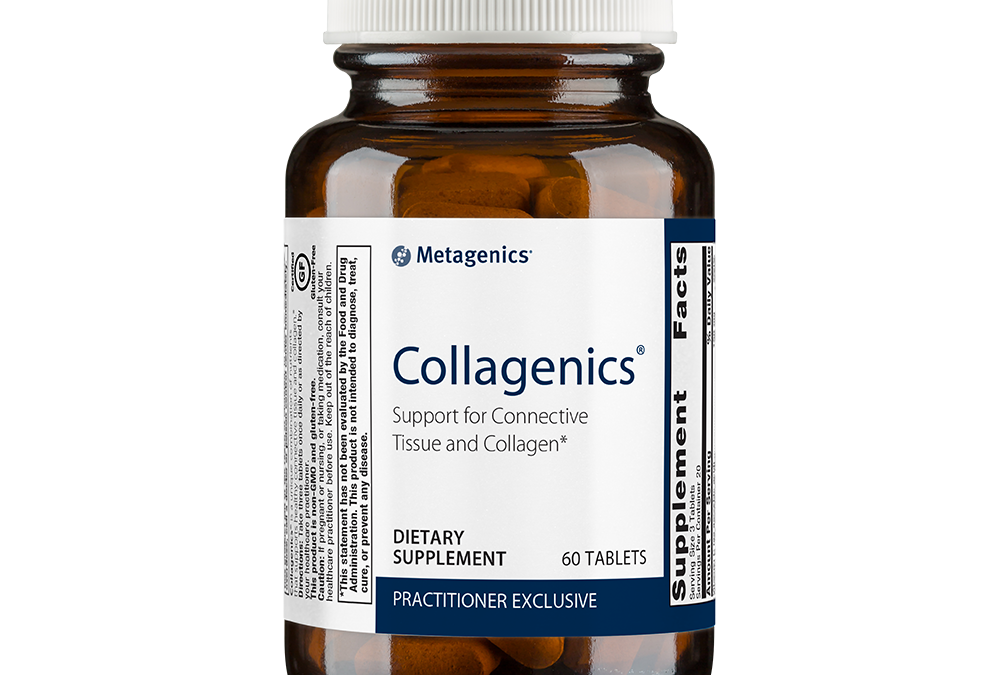
by dnshah | Mar 29, 2019 | Age Defying, Health and Wellness Tips
I’ve noticed the buzz on many people taking collagen supplements, especially in their senior years. Why all the buzz? Here’s some basic information about collage; but remember to always check with your doctor before adding new supplements. Only your doctor can advise you on quantities and alert you to cross reactions with medications and side effects to be concerned about.
Defined
Collagen, the uncooked form of gelatin, is a structural protein that forms connective tissue in the human body. Collagen is the supportive material that gives our bones, organs, skin and connective tissue shape, flexibility and strength. Collagen makes up roughly 90% of our bones and roughly 80% of our skin.
It’s not digested well in humans unless cooked for hours to break it down. General foods that contain collagen are fish, chicken skins, and other connective tissue meats.
The Buzz
We all want to sustain the integrity of our tissues, skin and digestive system. These are some of the benefits that collagen can provide (food and supplements).
Youthful Skin
Anti-aging cosmetic products are big business, but a natural food substance with anti-aging potential characteristics can be gold. There are several studies showing that collagen supplements improve skin hydration, elasticity, cellulite changes, and wrinkle reduction.
Leaner and more muscular body.
Collagen has been shown to increased muscle strength in age related muscle loss for elderly men, especially in combination with resistance training (when compared with placebo).
More durable joints.
Collage supplementation appears to promote integrity of tendons, and be a potential therapeutic agent to support joint health and manage osteoarthritis issues.
Healthy gut.
It’s important to keep the intestinal epithelial layer healthy and intact. Collagen supports the health of the digestive lining (just like our skin), and in this way promotes a healthier gut and immune system.
Selection
There are many different collagen supplements on market, so strive to find one that is high quality, but low in sugar, and with minimal ingredients. After asking your doctor about adding collagen to your diet, I recommend Metagenics collagen.
This article is not intended for the treatment or prevention of disease, nor as a substitute for medical treatment, nor as an alternative to medical advice. Use of recommendations in this and other articles is at the choice and risk of the reader.
References
http://www.pathophysiologyjournal.com/article/S0928-4680(00)00045-6/pdf

by dnshah | Mar 29, 2019 | Age Defying, Health and Wellness Tips
Typically spring brings us warmer temperatures and a transition from the dreary winter season. This transition can bring us change physically:
- Dehydrated skin / face
- Allergens in the air (pollen) can lead to skin rashes
- Increased oil production
- Increased hair production
So this calls for a transition to the spring season.
Spring is about new and fresh; so change up your skin regimen products to something soothing and calming to awakening your skin. Repairing your skin from winter harshness is important for preventing seasonal irritation. Think Aloe facial mask, Cucumber peels, and amazing hydration afterwards. Here are some tips.
Detox
Spring is about detoxing and cleansing. When we mirror that with our diet, our bodies are in sync with nature. At this time, eat more liver friendly foods so that your organs are nourishing you from the inside out. Focus on fiber, the new crops that are in season now: kale, mustard greens, dandelion greens, collards, radishes, etc. Incorporating bitter tasting foods now is a great detoxifier (cooked or raw) and beneficial to the skin also.
Masks
Cleanse and soothe irritated faces with masks that float moisture and antioxidants above the skin for maximum absorption. Create a calming ritual to welcome spring into your life, and be radiant for the natural warmth and growth the earth brings. Products to consider include masks made of Manuka honey, antioxidant berries, or probiotic yogurts. Combine desired ingredients with a few drops of warm water and apply topically. Allow it to sit for 15 minutes before rinsing off.
Air Purifier
Spring allergies can come with facial irritation, puffiness, and dry skin patches. A good air purifier can help rid the home of airborne irritants and help with these signs that spring is in the air.
Lighten the Moisturizer
Spring transition includes lightening up your moisturizer. Maintain moisture levels, but don’t suffocate skin with heavy products because our natural oil production is beginning to increase also. Cleanse skin and follow it up with a lighter moisturizer and massage it into the skin well so it absorbs.
A daytime moisturizer with an added layer of protection against the environment (sun, pollution, irritants) is ideal. A nighttime moisturizer with antioxidant is ideal. Put aside stronger acidic products with glycolic acid, and reach for calmer soothing ones.
Sunscreen
Sunscreens are a must in spring because of increased sun exposure. Ideally a ritual of daily face protection at a minimum is wise at this time. Acne sufferers can focus on products that don’t clog pores and suffocate the skin. Choose products with non-clogging oils and hypoallergenic ingredients.
Antioxidants
Repair and restore the skin with soothing botanicals and antioxidants. Look for skin protection with photo-protective properties that minimize sun-induced damage and use natural vitamin C. This protects better against UV damage. When cleansing, think about products with natural berries and oils that add layers of antioxidants and protection power. Think natural sprays, moisturizers, serums, and oils.

